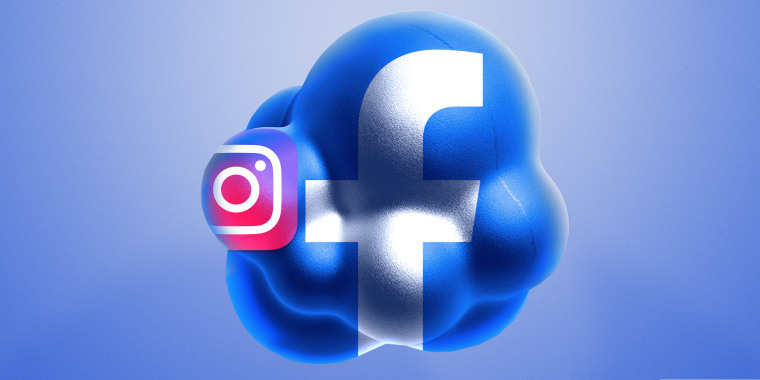On Monday, a federal court dismissed antitrust claims the Federal Trade Commission and a slate of state attorneys general had brought against Facebook. But the company shouldn’t celebrate just yet (though shares already rose following news of the decision).
One thing this case highlights is that it is difficult to apply traditional antitrust law to digital platforms.
Big Tech is overdue for a reckoning, and the key now is to make sure the legislative and regulatory steps taken in the name of reining in the industry actually result in protecting consumers and communities, not simply political interests.
This will not be the end of attempts from states and federal agencies to put more restraints on the power of the tech industry: In the judgment Monday, the court gave leave to the FTC to amend and refile its petition against Facebook at a later date. Given the recent swearing in of antitrust expert and noted technology critic Lina Khan as FTC chairperson and growing threats of antitrust legislation from prominent representatives, it appears more than likely that Facebook will face antitrust-related actions again.
From 2018’s Cambridge Analytica scandal to the Facebook Oversight Board’s decision earlier this year to sustain a ban on any accounts belonging to former President Donald Trump, Facebook has frequently emerged as a chief subject of high-profile, headline-making events related to tech platforms and social media.
But we should not be looking to Facebook as a representative of all tech companies, nor should legal actions to address any anticompetitive behavior from Facebook be muddled with general anti-tech sentiment for political gain.
In the complaint from Monday's decision, the FTC and the state attorneys general argued that Facebook had engaged in anticompetitive behavior, creating a monopoly in the market of “personal social networking services.”
The FTC argued that Facebook has created an unlawful monopoly by preventing other competitors from competing in the market. It’s true Facebook has had a habit of acquiring potential competitors, including Instagram and WhatsApp, and the company has implemented policies that prohibit other companies from creating apps that can interface with Facebook’s.
One thing this case highlights is that it is difficult to apply traditional antitrust law to digital platforms.
But the court ruled that the FTC failed to prove that Facebook actually has monopoly power in the market for “personal social networking services.”
One thing this case highlights is that it is difficult to apply traditional antitrust law to digital platforms. In fact, one of the first achievements to propel Khan to the national stage was the publication of her landmark paper “Amazon’s Antitrust Paradox,” which argued for a new model for applying antitrust laws to digital platforms like Amazon and, indeed, Facebook.
The court in Monday’s FTC v. Facebook judgment ran into one of the issues Kahn raised in her 2017 paper: the difficulty of determining what a digital market is or measuring competition effects in such a market.
The political pressure against Big Tech has been building on all fronts, from both sides of the aisle as legislators and regulators appear to be using antitrust as a blunt tool to attack tech companies like Facebook. In recent years, we’ve seen a continual rise in controversies related to online platforms like Facebook, including explosive ones related to consumer privacy, disinformation and perceived bias in content moderation.
For example, some blame social media companies like Facebook for amplifying voices and messages that may have led to the attempted insurrection on Jan. 6, when hundreds of Trump supporters stormed the Capitol to try to overturn a lawful national election. At the same time, the companies still remain popular, at least in terms of sheer user numbers. (In its 2020 investor report, Facebook claimed to have 2.80 billion monthly active users worldwide.)
The challenge today shouldn’t be simply how to attack Big Tech but how to regulate digital platforms in ways that protect consumer interests like privacy and speech, while also paving the way for a better global internet in the future. For that to happen, we’ll need more than just antitrust law.
We need to address each problem we see with social media companies with legal and regulatory solutions tailored to the problem and not broadly targeted at industries writ large. For example, we shouldn’t let the building antitrust pressure lead to further delays in Congress passing a federal privacy law, something that will be important to protect our interests not only domestically but also abroad.
Even outside of the antitrust context, we should consider requirements for interoperability, encouraging companies to do things like allow consumers to port their contact lists or access apps cross-platform. We could selectively reform regulation of online speech, keeping in mind the necessity of the internet as a critical venue for freedom of speech worldwide and the dangers of government overreach in speech regulation.
As always, with any politically volatile issue, especially one that affects so many of us, there is a danger that political pressures will get in the way of actual meaningful reform. There are many possible solutions to the problems we see now with social media and tech platforms. Antitrust should not be the end of it, for Facebook or the rest of the tech industry — and certainly not for consumers and advocates fighting to protect our rights.

